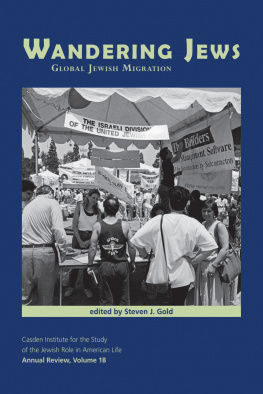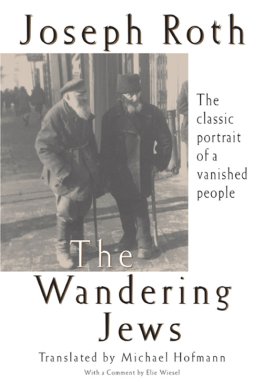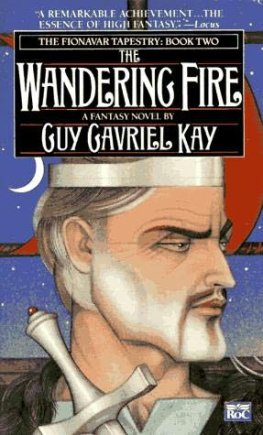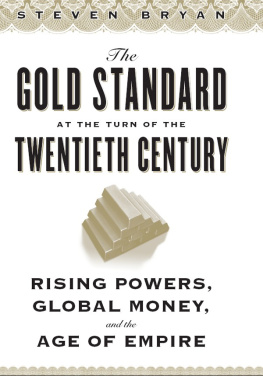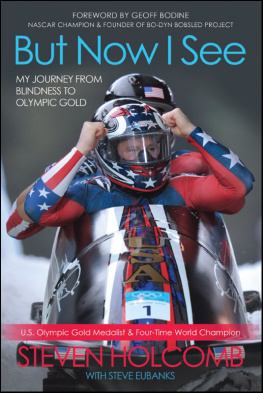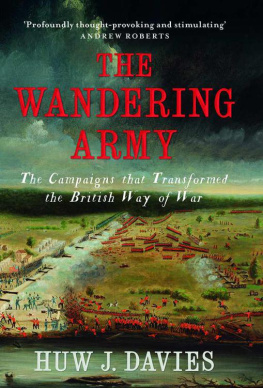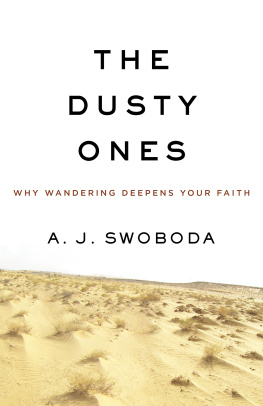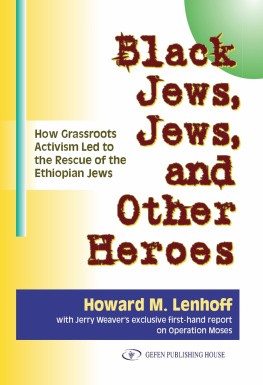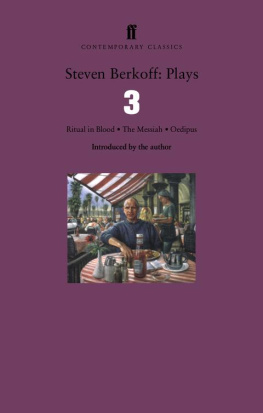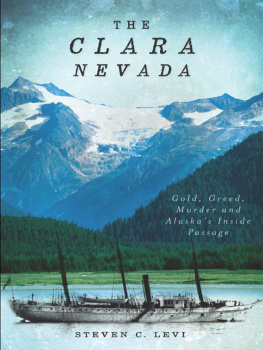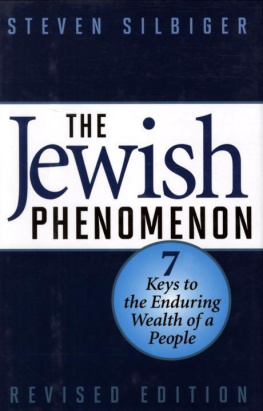Steven J. Gold - Wandering Jews
Here you can read online Steven J. Gold - Wandering Jews full text of the book (entire story) in english for free. Download pdf and epub, get meaning, cover and reviews about this ebook. year: 2020, publisher: Lightning Source Inc. (Tier 3), genre: Politics. Description of the work, (preface) as well as reviews are available. Best literature library LitArk.com created for fans of good reading and offers a wide selection of genres:
Romance novel
Science fiction
Adventure
Detective
Science
History
Home and family
Prose
Art
Politics
Computer
Non-fiction
Religion
Business
Children
Humor
Choose a favorite category and find really read worthwhile books. Enjoy immersion in the world of imagination, feel the emotions of the characters or learn something new for yourself, make an fascinating discovery.
- Book:Wandering Jews
- Author:
- Publisher:Lightning Source Inc. (Tier 3)
- Genre:
- Year:2020
- Rating:5 / 5
- Favourites:Add to favourites
- Your mark:
- 100
- 1
- 2
- 3
- 4
- 5
Wandering Jews: summary, description and annotation
We offer to read an annotation, description, summary or preface (depends on what the author of the book "Wandering Jews" wrote himself). If you haven't found the necessary information about the book — write in the comments, we will try to find it.
Wandering Jews — read online for free the complete book (whole text) full work
Below is the text of the book, divided by pages. System saving the place of the last page read, allows you to conveniently read the book "Wandering Jews" online for free, without having to search again every time where you left off. Put a bookmark, and you can go to the page where you finished reading at any time.
Font size:
Interval:
Bookmark:

The Jewish Role in American Life
An Annual Review of the Casden Institute for the Study of the Jewish Role in American Life
The Jewish Role in American Life
An Annual Review of the Casden Institute for the Study of the Jewish Role in American Life
Volume 18
Steven J. Ross, Editor
Steven J. Gold, Guest Editor
Lisa Ansell, Associate Editor
Published by the Purdue University Press for
the USC Casden Institute for the Study of the
Jewish Role in American Life
2020
University of Southern California
Casden Institute for the
Study of the Jewish Role in American Life.
All rights reserved.
Production Editor, Marilyn Lundberg
Cover photo supplied by Steven J. Gold.
Booth for the Israeli Division of the United Jewish Fund, Los Angeles Jewish Festival in Rancho Park, California, June 2, 1991.
Hardcover ISBN: 978-1-61249-667-2
Paperback ISBN: 978-1-55753-998-4
ePDF ISBN: 978-1-61249-620-7
ePUB ISBN: 978-1-55753-999-1
Published by Purdue University Press
West Lafayette, Indiana
www.press.purdue.edu
Printed in the United States of America.
Laura Limonic
Nahid Pirnazar
Nir Cohen
Lilach Lev Ari
Gil Ribak
Libby Garland
Kirsten Fermaglich
Jews have been in motion for thousands of years, moving across continents, nations, and citiessometimes voluntarily, often because there was no alternative. How Jews moved, where they moved, what they experienced, and the ways they dealt with their new surroundings is the subject of this innovative volume of The Annual Review. Our guest editor, Steven Gold, has assembled a series of seven cutting-edge essays that examine multiple aspects of Jewish global migration in the twentieth and twenty-first centuries.
Placing their work within the relatively new field of migration studies, our contributing authors reveal that while Jews may share a common religion, their patterns of migration and acculturation were as different as the many nations from which they came. As volume editor Steven Gold notes in his Introduction, the essays are divided into two categories. Several authors explore the hardships Jews faced in migrating to the United States and other countries, while others focus on the problems of adjusting to life in new lands or new cities within the same country. We learn how survivors and refugees in postwar Europe worked with Jewish aid groups to navigate the difficult process of obtaining visas to move the United States. Another essay traces the diverging experiences of Jews migrating to the United States from the former Soviet Union, Israel, and Latin America. Jews who remained in Europe faced their own particular difficulties. One essay focuses on the myriad experiences of Jews who migrated to Paris, Brussels, and Antwerp, while a final essay on migration patterns reveals how the Israeli government attempted to lure highly skilled Jewish migrs back to their homeland.
Once in the United States, Jewish immigrants encountered a remarkably wide array of experiences. Not only did Jew have to adjust to living alongside Christians, but in the case of Polish Jews, they also had to adjust to living alongside German Jews who often treated them with as much disdain as their American Christian neighbors. Iranian Jews also encountered difficulties in their new land; some were caused by the contempt of Ashkenazi Jews, while other problems emerged from the Iranian communitys tendency to isolate themselves from others, Jews and non-Jews alike.
Finally, we learn that internal migration could pose just as many problems as external migration. American Jewish academics who came from large cities with vibrant Jewish life often found it difficult to move their families to college towns such as East Lansing, Michigan, which lacked a Jewish infrastructure.
Taken collectively, the essays in this volume offer new looks at the multiple experiences of Jews as they attempted to immigrate and then adjust to life in a new homeland or new city.
I wish to thank our guest editor, Steven J. Gold, for helping to make this volume a reality. I also wish to thank Marilyn Lundberg Melzian for her wonderful work as our volumes production editor.
Steven J. Ross
Myron and Marian Casden Director
Professor of History
by Steven J. Gold
A long-standing topic of research, the study of Jewish migration, has recently revealed new levels of growth and innovation. The increased visibility of diverse forms of migration on a global scalefrom refugees and labor migrants to transnational entrepreneurshas contributed to enhanced interest in the subject.
This book brings attention to compelling examples of new scholarship in this field. While available space precludes an exhaustive evaluation of the reasons underlying this development, this introduction reviews three fundamental factors that have contributed to the growth and intellectual expansion in the study of Jewish migration. First is the expansion and broadening of migration studies in general that has occurred in recent decades. Second is the increase in financial and institutional support for Jewish studies. Finally, a third reason for the fields growth is ongoing instances of Jewish migrationboth within and across national bordersthat compel immigrant-aid organizations and migration scholars to learn about and assist their peripatetic landsmen.
A number of leading scholars have reflected on the transformation of migration studies, noting that the topic is currently examined by a wider range of academic disciplines than ever before.
Observers of migration studies assert that even as the field has expanded and diversified, it has managed to become more rigorous, more international in focus, and more firmly grounded in theory. Moreover, this scholarly endeavor has maintained a significant degree of integration and continuity across disciplines, nations, and world regions. As a consequence, its methods and findings are increasingly applied to a broad range of concerns. Migration research informs policy making by governments, NGOs and immigrant-aid organizations. It also counters the assertions of anti-immigrant movements.
Given the recent upturn in interest and support for studies of migration, a variety of disciplinary associations have established sections, committees, publications, conferences, awards, and other endeavors devoted to the study of migration. This reflects a significant transformation in the fields foci over a relatively short time. As the authors of What Is Migration History? point out, until the 1970s, the study of migration was fixed almost exclusively on Western Europe and the US, was androcentric, elitist, overwhelmingly devoted to workforce issues, and indifferent to migrants interpretations of their own experiences. Subjects such as stratification, slavery, refugees, forced migration, and re-migration were rejected as suitable topics for migration research.
The fact that a significant fraction of contemporary migration scholars are themselves migrants, has helped move migration studies from a narrowly framed undertaking to one now much more ambitious and wider in scope. By and large, scholars who have a personal or familial connection to migration are much better equipped to understand the complex realities encountered by migrants than those with little immediate connection to the process. As a consequence of historical and social factors, Jews have been very well represented among those who have developed the ways through which migration research has been conducted and how knowledge resulting from this examination is put to use.
Font size:
Interval:
Bookmark:
Similar books «Wandering Jews»
Look at similar books to Wandering Jews. We have selected literature similar in name and meaning in the hope of providing readers with more options to find new, interesting, not yet read works.
Discussion, reviews of the book Wandering Jews and just readers' own opinions. Leave your comments, write what you think about the work, its meaning or the main characters. Specify what exactly you liked and what you didn't like, and why you think so.

